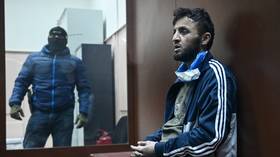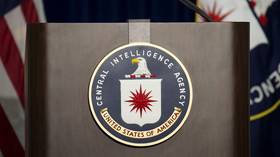Moscow terror attack suspects were on drugs – media

Traces of a drug that suppresses fear have reportedly been found in blood samples taken from the four suspects in last week’s terrorist attack at a Russian concert hall.
The claim came on Thursday from the online news outlet Baza, which cited an anonymous source who purportedly has insider information about the ongoing investigation into the Crocus City Hall massacre.
Four suspects were apprehended hours after the rampage that claimed over 140 lives. All of them had a psychotropic substance in their blood that “alters perception of reality,” Baza claimed. It is understood that they took the unnamed drug before the gun and arson attack.
The same report claims that members of the group had visited the music venue at least three times before the assault last Friday – on March 7, 10, and 14. Previously, the media said one of the men was photographed on the premises on March 7. The two other visits were made by another suspect, Baza claims.
Investigators have also reportedly identified a gas pump where the group filled up their car the day before the attack. They used the same vehicle to drive to the Crocus City Hall and get away around 15 minutes later.
Russian law enforcement intercepted them in Bryansk Region. They purportedly sought to cross the border with Ukraine to escape pursuit and potentially receive “a heroes’ welcome,” as was alleged by Aleksandr Bortnikov, the head of Russia’s Federal Security Service (FSB).
According to Russian officials, the alleged perpetrators are radical Islamists who were recruited through an online chat apparently operated by the Afghanistan-based offshoot of Islamic State (IS, formerly ISIS).
Investigators suspect that contrary to the group’s claim of responsibility for the terrorist act, another party, such as the Ukrainian intelligence service, may have been behind the plot.













